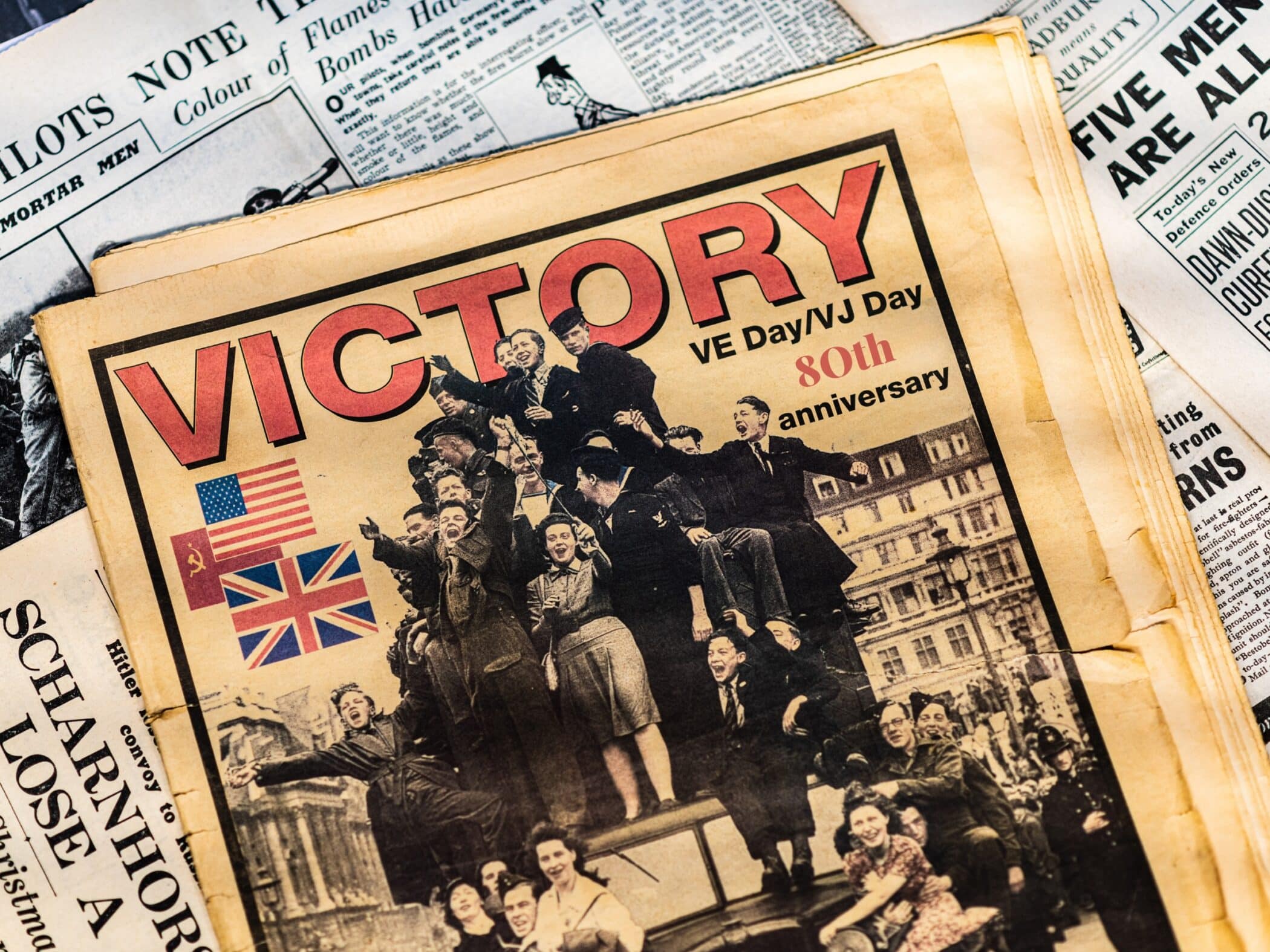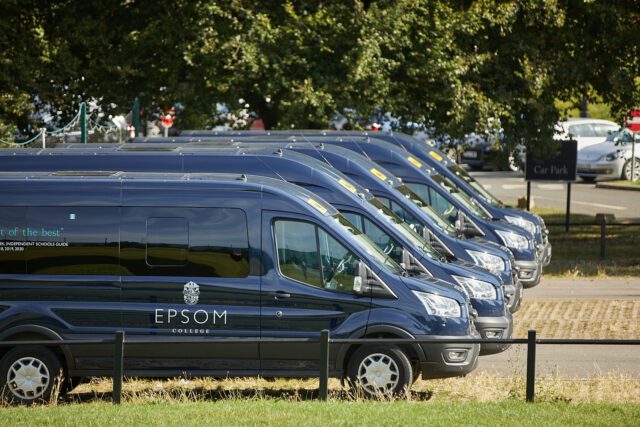As the nation gathered to remember the events of 80 years ago, the College too came together to reflect, remember and honour the sacrifices made and the peace secured.
“VE Day reminds us of the extraordinary courage and resilience shown during one of history’s darkest times,” said Rebecca Worthy, College Archivist. “At Epsom College, we honour this legacy not only through remembrance, but also through education. As an archivist, I see how preserving the stories of our OEs, staff and those in the wider Epsom community connects our students to the past, teaching the value of peace, unity and compassion.”
In Chapel, we held our VE 80th Anniversary Service. Canon Andrew, with the help of Mrs Worthy, talked about how life at Epsom College was significantly shaped by the events of the Second World War. The campus, though still a place of learning and community, was also adapted for the realities of wartime Britain.
Altering the fabric of the College
Air raid shelters were established across the site, and staff were trained to use fire extinguishers in case of bombing. Glider traps were set up in case of invasion. Many classrooms were moved upstairs while the boarding dormitories were relocated downstairs, allowing quick access to shelters at night. Ropes were fixed to the insides of buildings near windows, so that pupils and staff could evacuate quickly during an emergency. Long ladders were also positioned strategically around the campus for rescue or rapid escape.
Member of Epsom’s Home Guard were active, and daily routines were shaped by a constant awareness of potential threats. Dining took place in Main Hall, but food supplies were limited. The College farm – located on what we now call the Farm Pitches – produced vegetables such as carrots and potatoes and kept chickens and rabbits for eggs and meat. Even so, rations were tight. Memories from that time recall the frequent use of horse meat and having to skim off fat before meals could be eaten.
Crashing planes and falling plaster
Old Epsomian Tony Brewis, who was an M4 in the summer of 1944, recalled attending a French lesson on the top floor of what is now the Art School. Accessed by an external metal staircase, the room was shaken when a bomb fell on nearby Links Road. Two boys, late for the lesson, had paused at the top of the staircase, just in time to see what they thought was a crashing plane. The explosion threw up soil and dust, covering them. Their teacher, Mr Dodgson – a veteran of the First World War – calmly instructed the class to take cover under their desks as plaster fell from the ceiling.
To mark this year’s VE Day, our Head Groundsman, Jason O’Keefe, has created a striking installation of 80 poppies and historical images in the College’s Memorial Garden. It is a beautiful and poignant tribute, and we are deeply grateful for the care and attention with which it has been made.
We cannot thank too many of those who served – most will have passed away. But as we remember and commemorate their courage and sacrifice, perhaps we can also dedicate ourselves to striving for peace. At times, we may need to stand up and fight for peace – an idea that seems contradictory, but one that underpinned the actions of those who served. They fought so that we might live in relative peace today.
For them, for those involved in peacekeeping efforts around the world today, and for each of us who hopes to live in and contribute to a more just and peaceful society – where freedom of expression is respected and protected – we say, thanks be to God.





